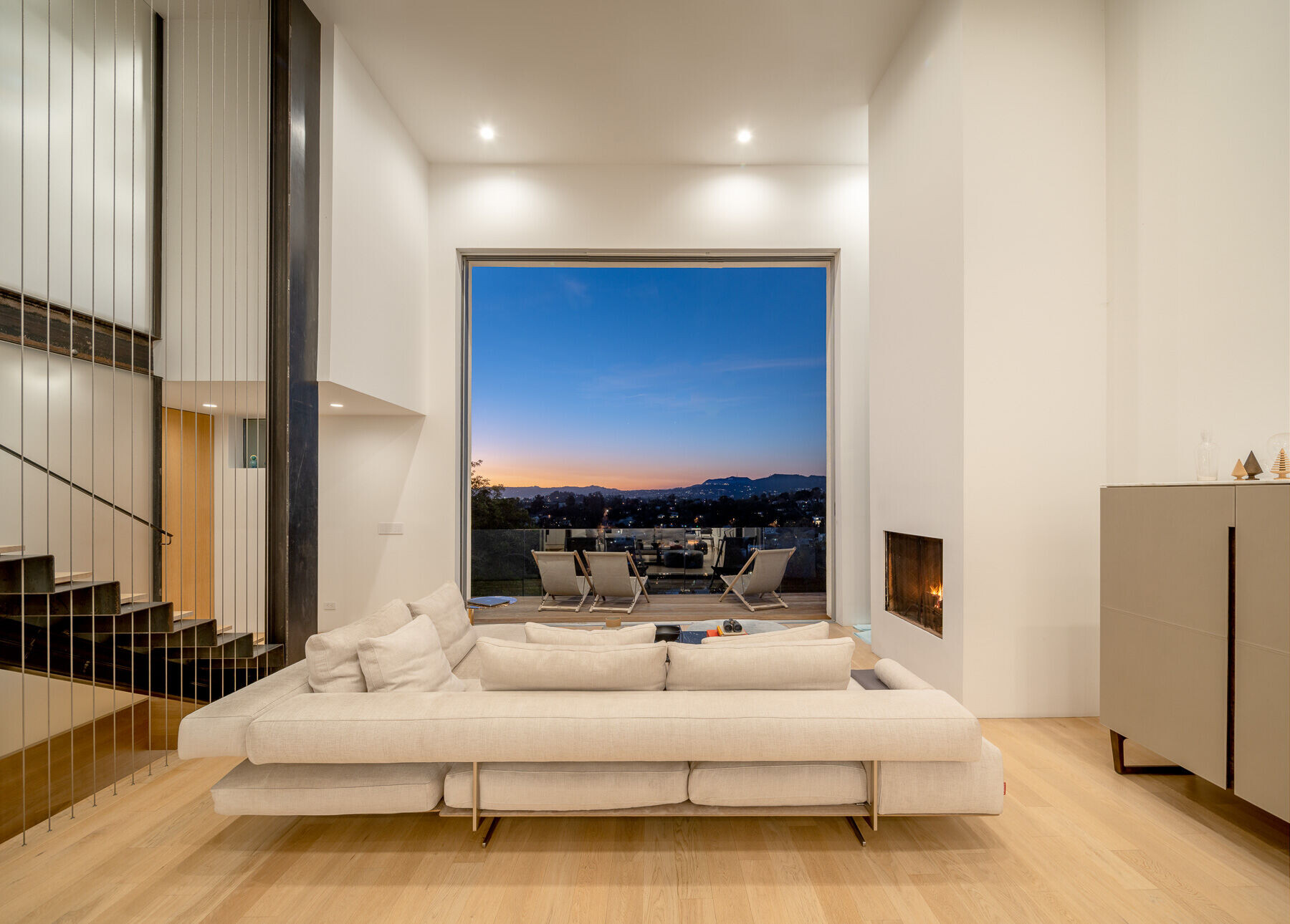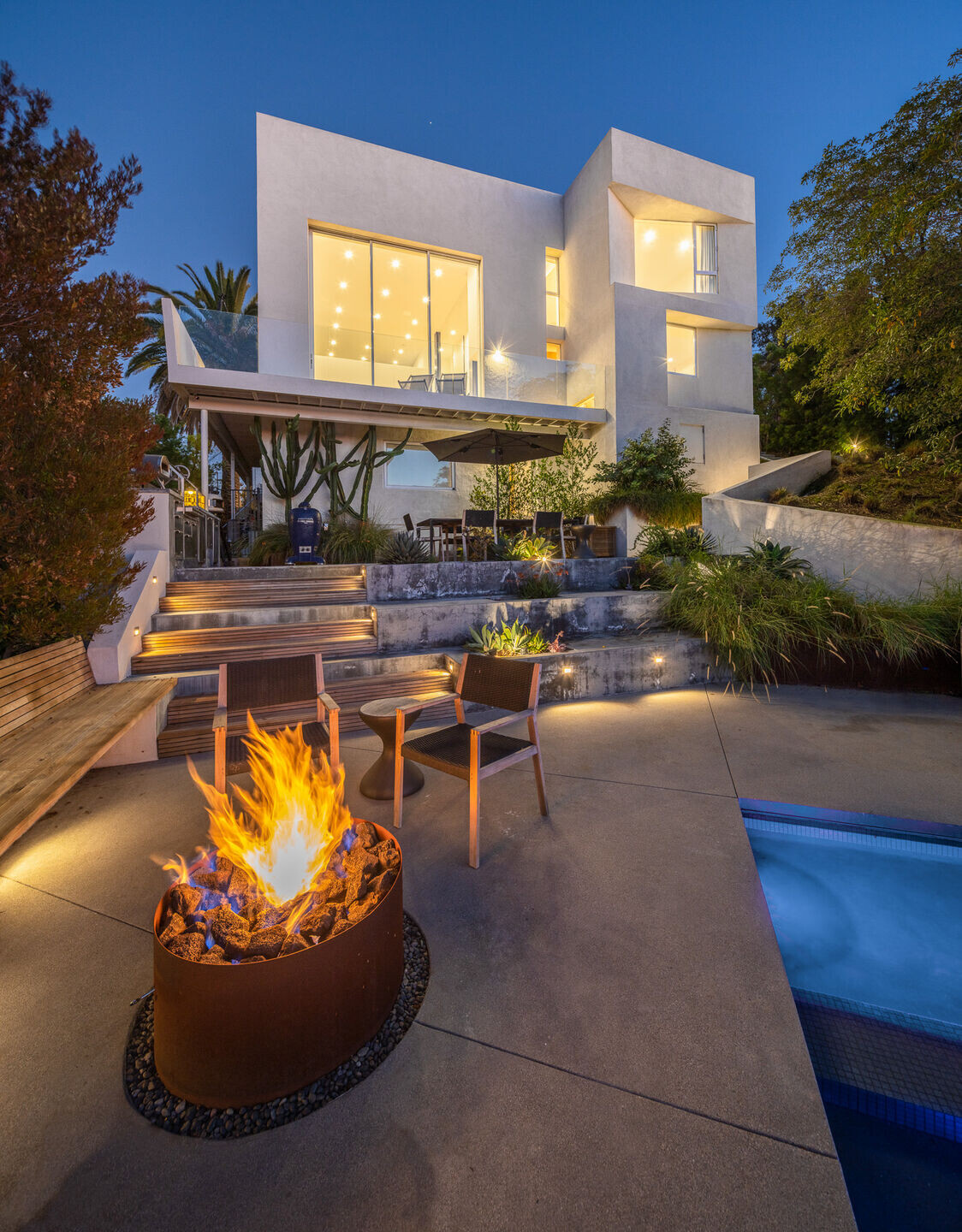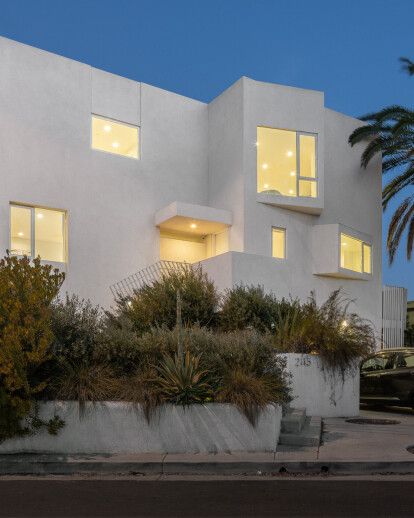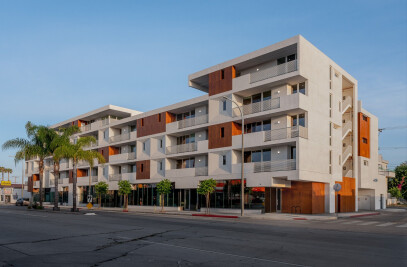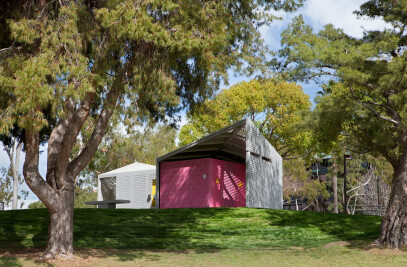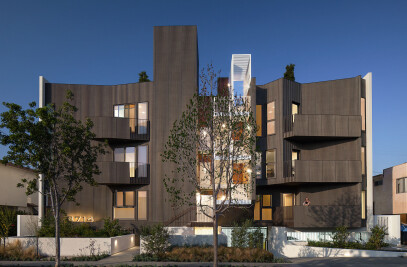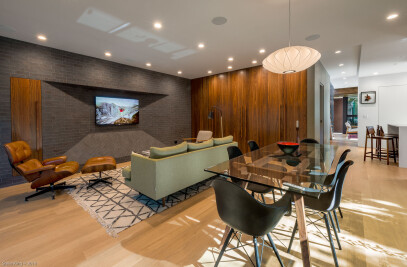Located in an area just outside Downtown Los Angeles adjacent to Elysian Park, Chavez Ravine and Dodger Stadium the “View House” sits atop a steeply sloped site with views across the city-scape. From its perch one can see the downtown skyline, the iconic Hollywood Sign, Griffith Observatory and the woods of the Angeles National Forest. The owner, a Danish national, had been on a lengthy and extensive search for a house in this area and finally came upon a candidate he imagined could be transformed from an inward focused, faux dated craftsman into a modern dwelling that reflected his desire to connect with the site’s surroundings and the energy of urban Los Angeles.
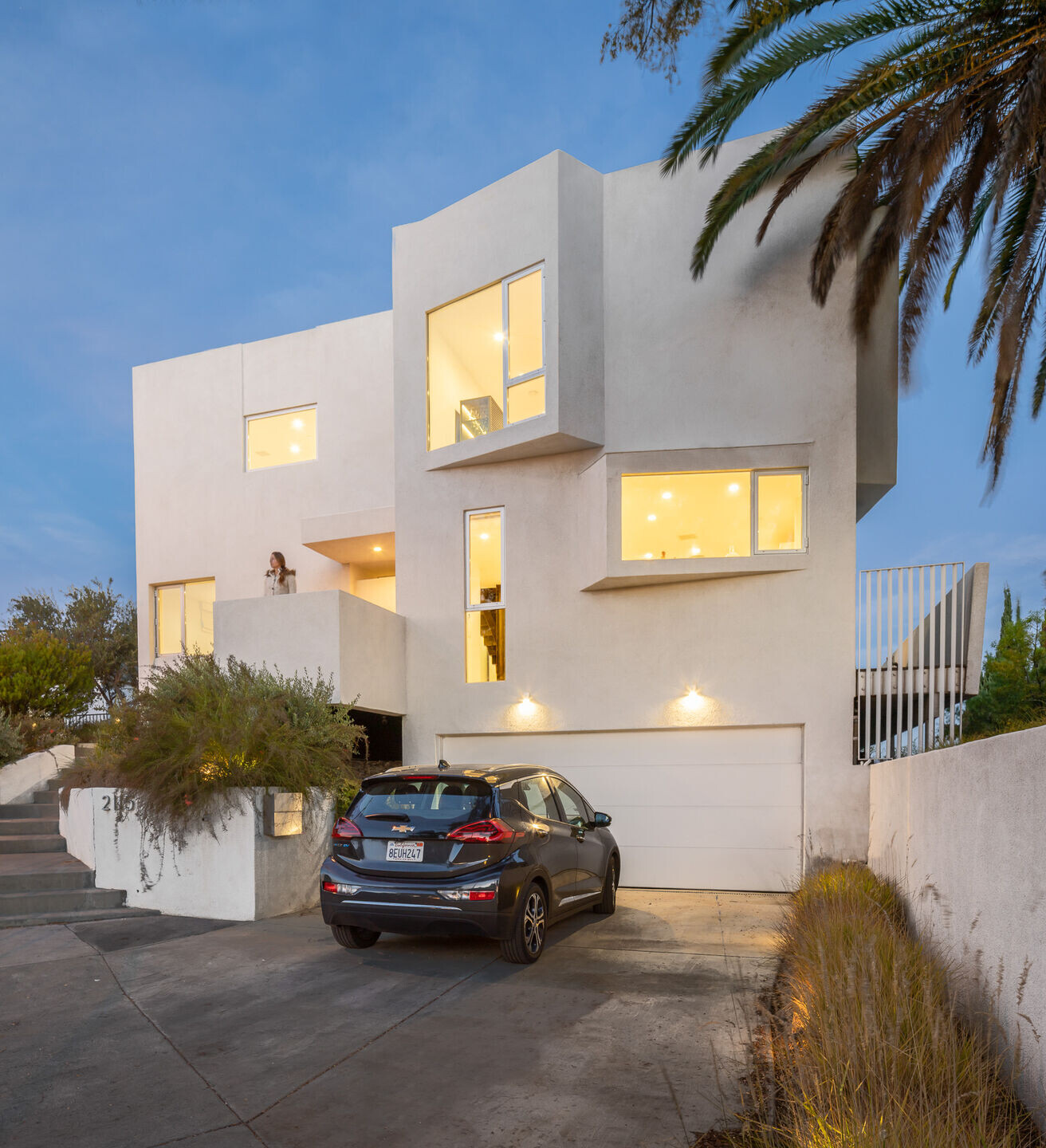
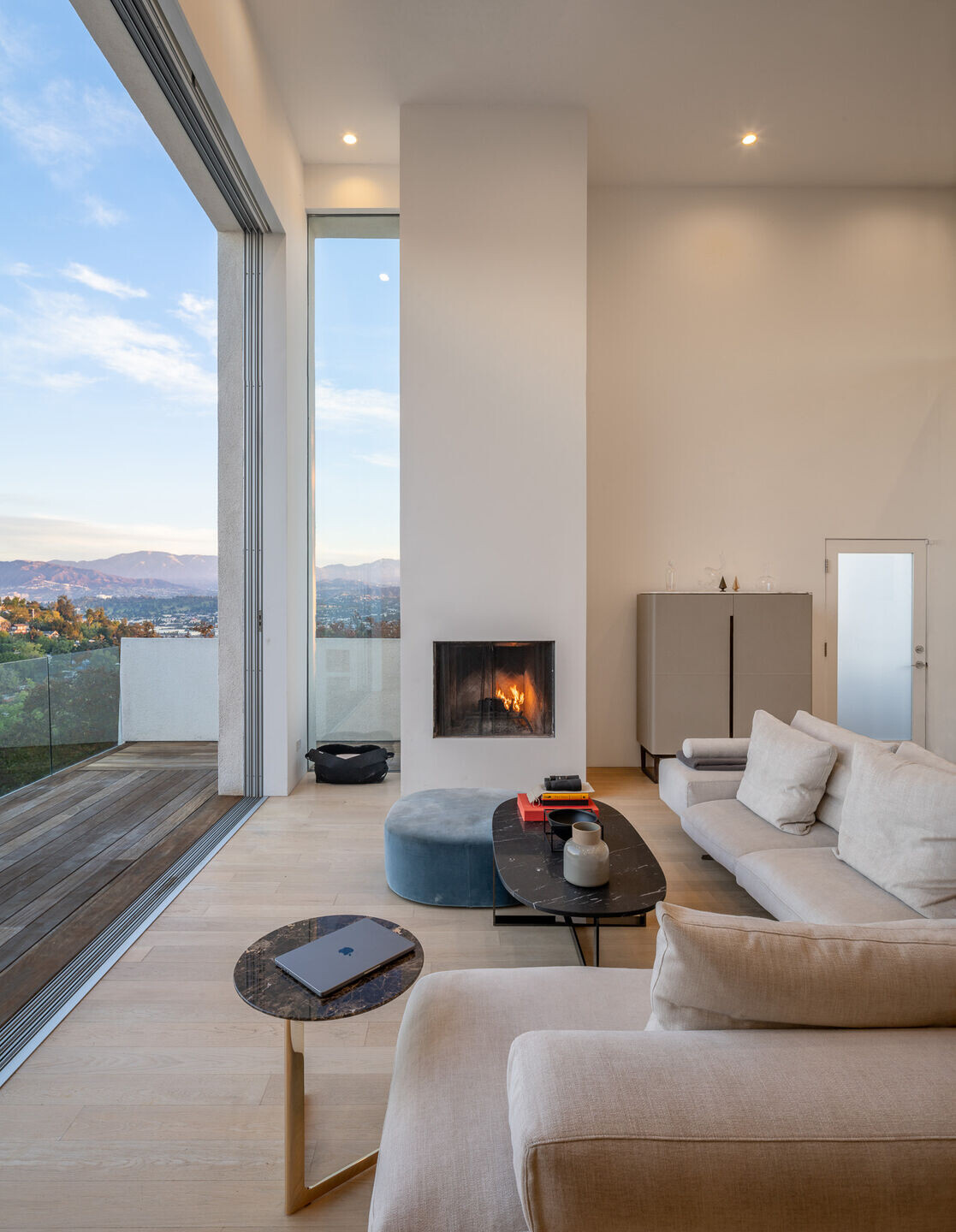
The house’s purpose and orientation were re-imagined. The owner, a tech executive, with European and Asian roots and a global business, wanted a home that transitioned between intense work-place, intimate sanctuary and active entertaining.
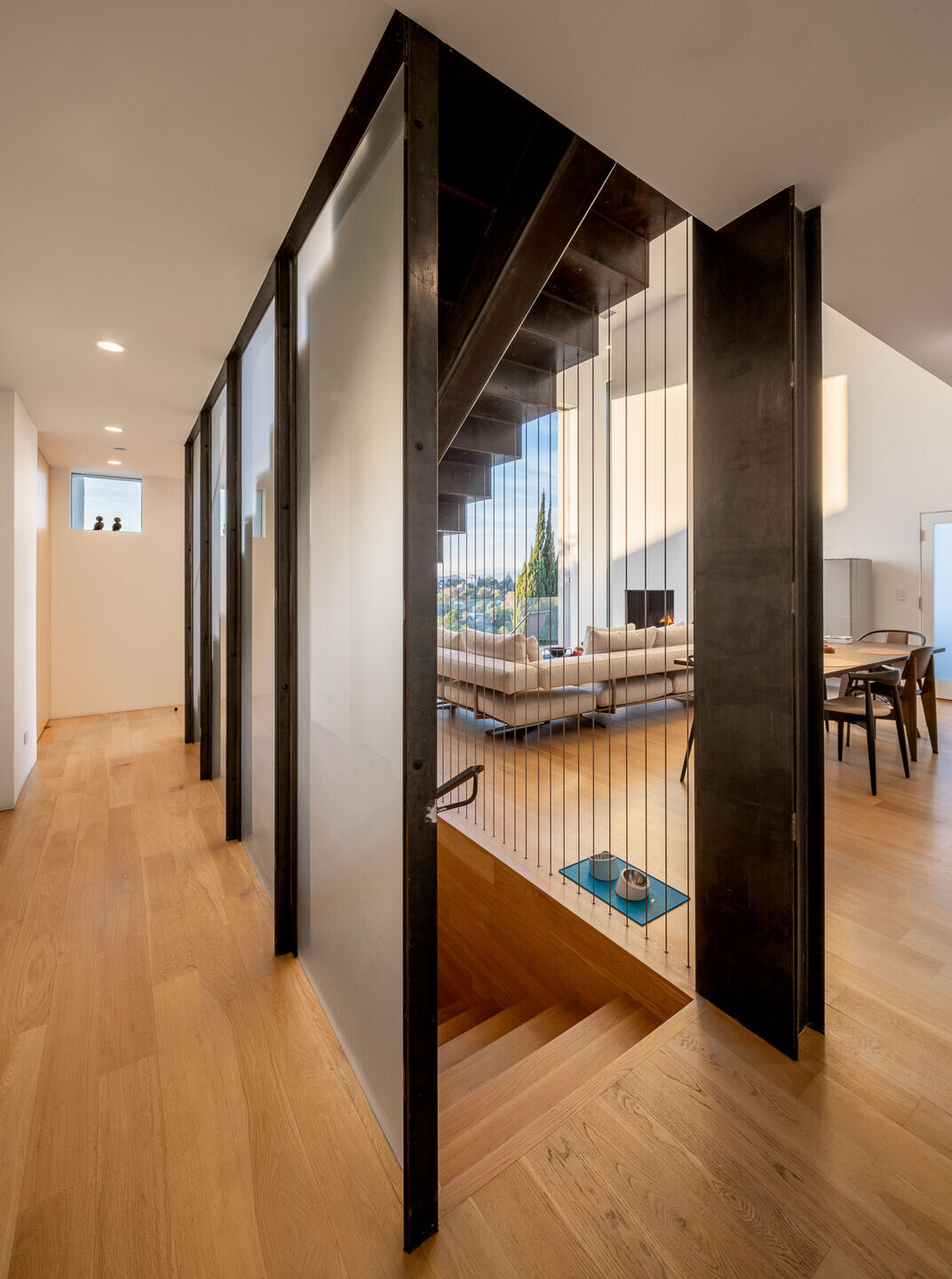
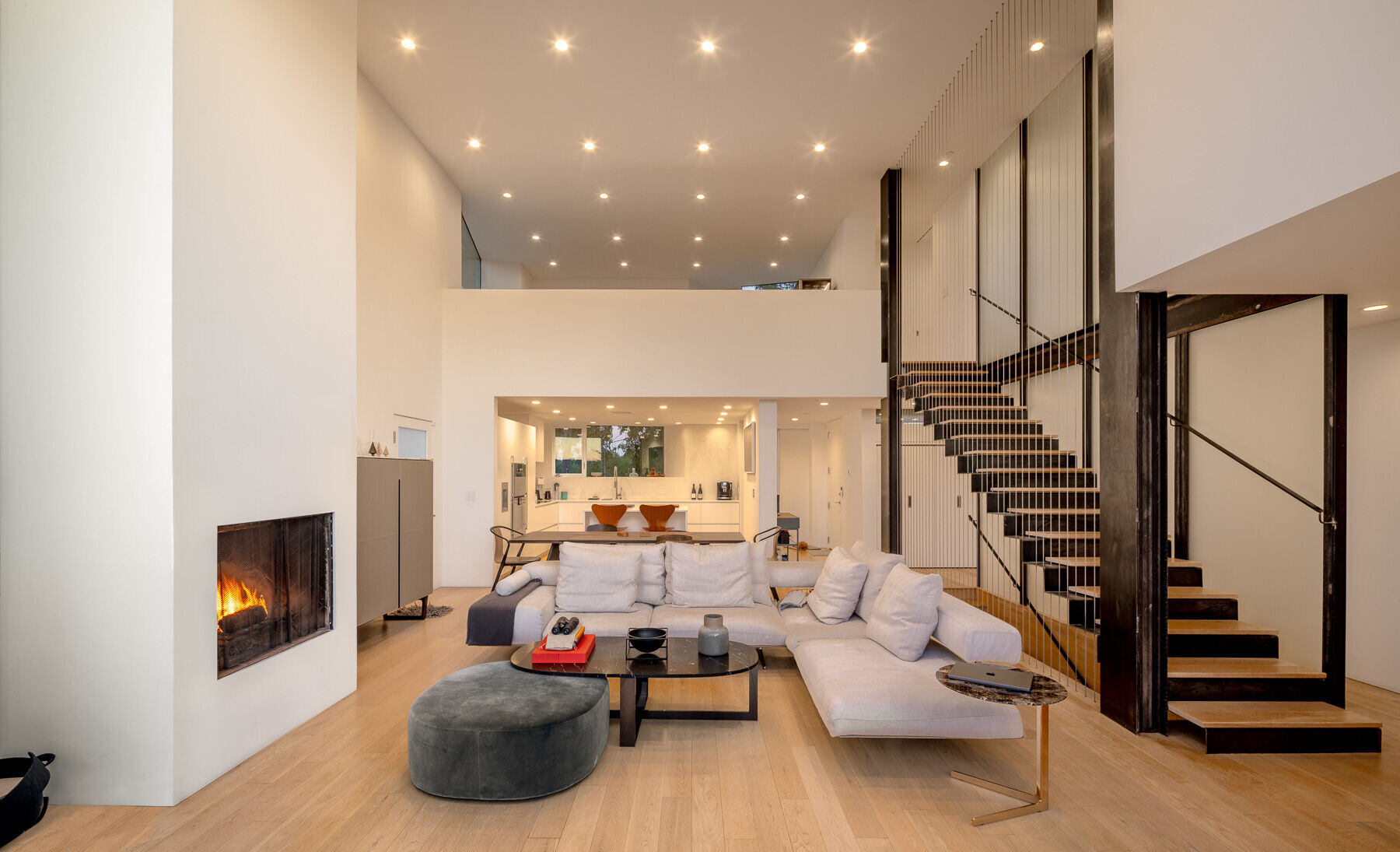
After a thorough analysis of the site’s topography, surrounding views and orientation, the spaces of the house were completely reconfigured. The program was dispersed vertically over three levels. The partially submerged ground level accommodates a garage and guest suite and accesses a dining patio that leads to a multilevel, terraced garden and pool area that follows the downward topography of the site. The second level is the main floor and entry for the home. A stair winds its way up to the house from the street past a small patio/outlook to a modest front door. The door opens into a small vestibule directly across a sliding wall panel that leads to the kitchen on the other side. As this panel is typically closed the visitor is turned, drawn to the beam of natural light revealing a double height living room and expansive, almost limitless view to the Hollywood Sign a few miles beyond. The glass rail at the deck’s perimeter visually dissolves giving one a sense of space that has no boundary. In addition to this expansive “door-less” opening, two other elements help balance this space; a metal and wood staircase with steel cabling and a small fireplace with its prominent vertical flue enclosure. The fireplace was a remnant retained from the original house while the stair was a new intervention around which the interior space is anchored. The vertical circulation is stacked for efficiency and convenience. While the stair up to the loft and primary sleeping area is highly expressive, a primary feature of the home’s architecture, the stair to the ground level is more subtle. The wood flooring of the living area turns and cascades down the sides of the stair’s opening; a negative space the draws and connects the living room to the exterior garden on the level below.
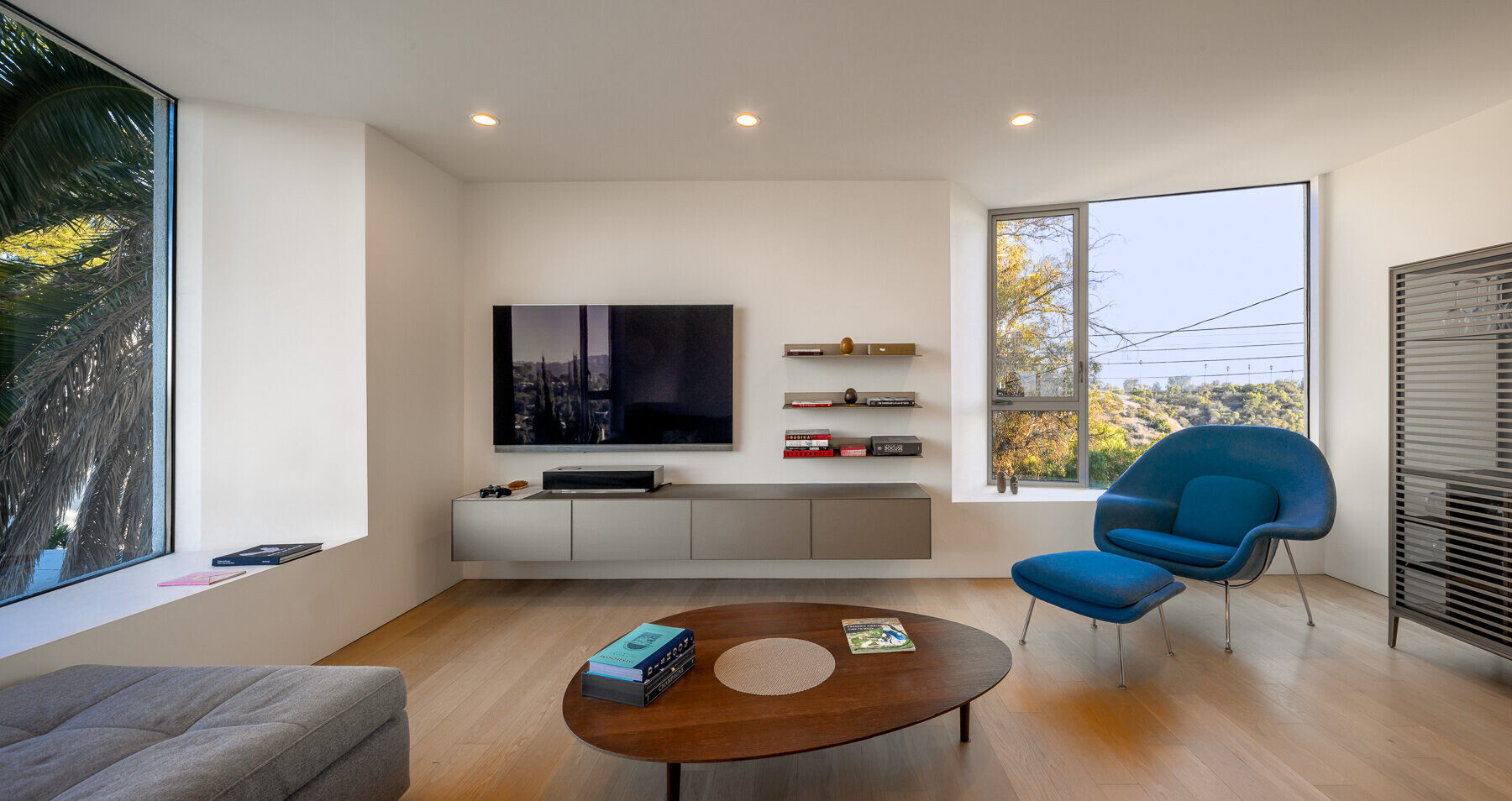
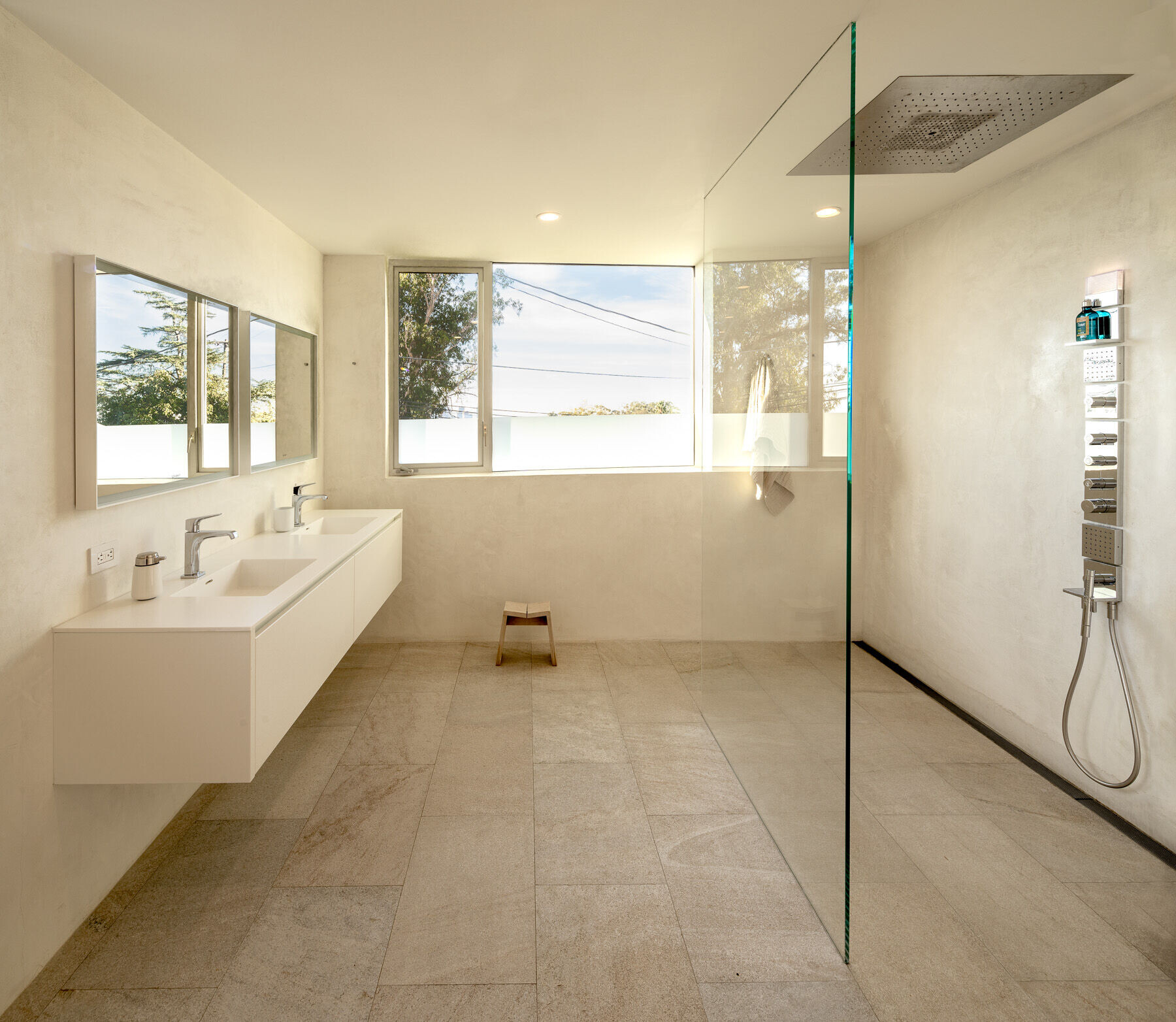
An avid cook and regular host to friends and family visiting from other parts of the world, the house provides the owner’s guests a visual introduction to the expansiveness of Los Angeles. Through-out the home, exterior openings are strategically cut and project outward or inward to focus on specific views. To maintain the house’s concept as a lens to the environment beyond, the choice of a simple white heavily textured stucco was adopted for the exterior. The textured stucco supports the idea that the project was sculpted from a single material, a monolith, pulling in and pushing out, as needed, to orient interior spaces to points beyond. The design of the house exploits its surroundings virtually and actually to expand what is otherwise a modest footprint and the creation of a spatially dynamic experience.
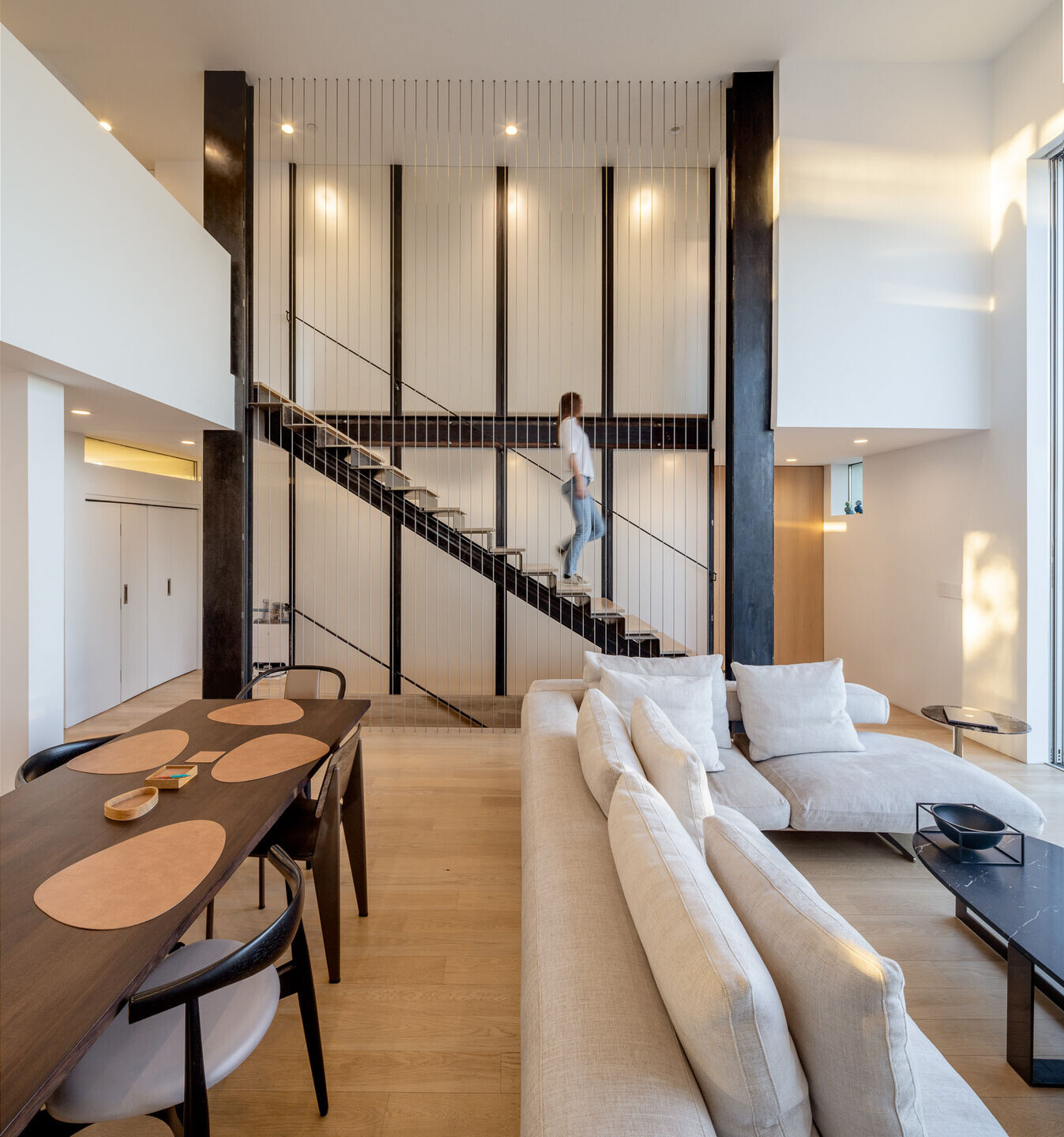
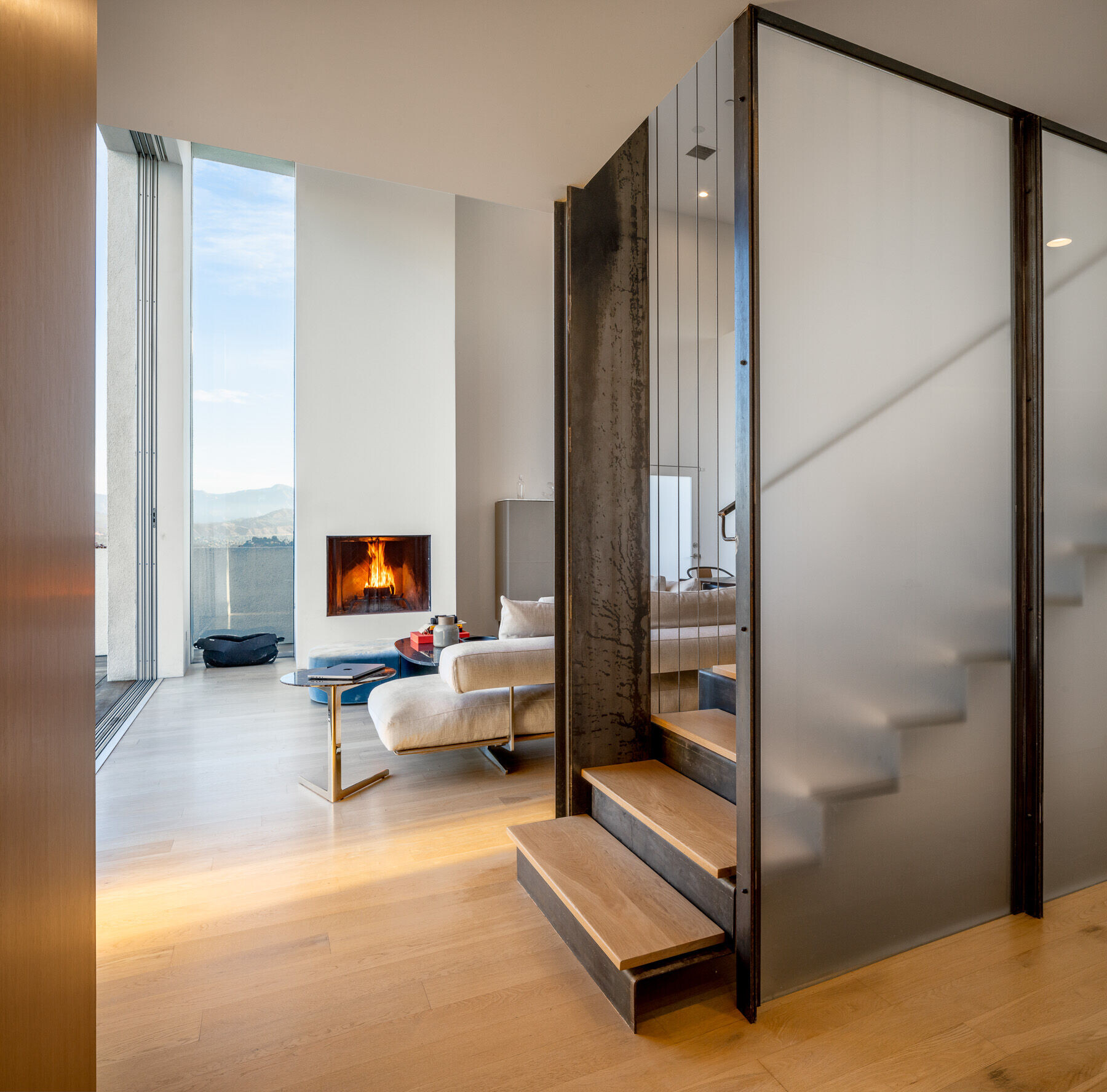
Team:
Architects: Pleskow Architects
General Contractor: The Alexander Building Co
Photographer: Steve King
